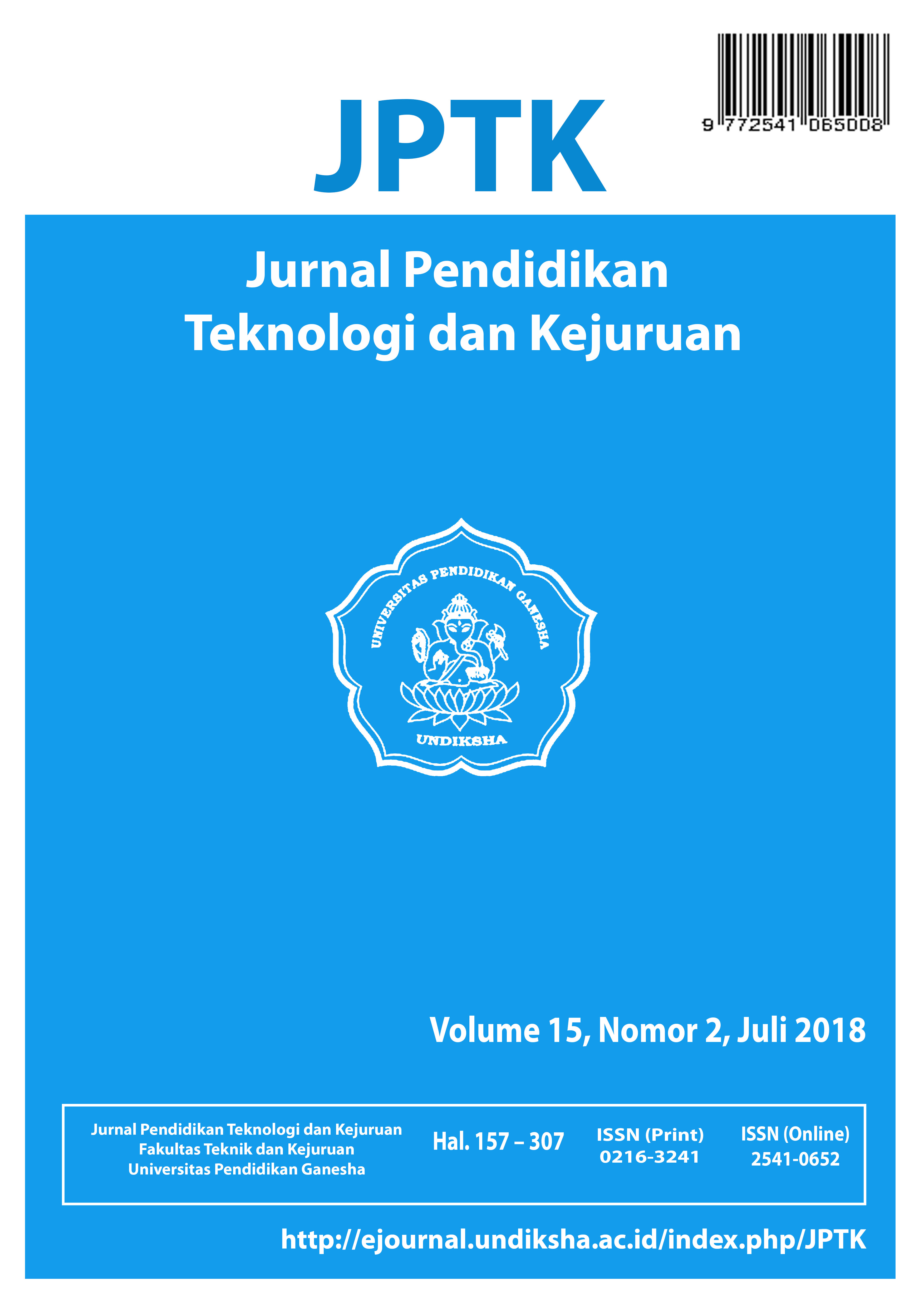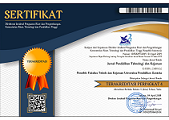THE ACCEPTANCE OF MOOC AMONG TVET STUDENTS IN HIGHER EDUCATION: AN OBSERVATION
DOI:
https://doi.org/10.23887/jptk-undiksha.v15i2.14183Abstract
Teaching traditionally through the use of textbooks and lecture makes the decline in learning desirability among technical & vocational education and training (TVET) students. In the 21st century learning, the technology changes in learning such as e-learning have led to the use of technology in the field of TVET. Most TVET educators have started using the Massive Open Online Course (MOOC) as a learning medium. The purpose of this study to enhance the quality of teaching and learning for TVET students in higher education. Teaching and learning in TVET lack of using blended learning approach. This study examine students’ acceptance and specify the criteria that make Massive Open Online Courses (MOOC) suitable for TVET in learning environment. The respondent are 60 students randomly selected from Creativity and Innovation courses. This study employed the quantitative methodology which include the use of questionnaire with Likert scale. The questionnaire consist four construct to examine the criteria of MOOC for teaching and learning in TVET. The reliability test of Cronbach Alpha is 0.813. Data were analyzed using descriptive analysis. The findings show that the constructs of perceived of usefulness (mean=1.85), perceived ease of use (mean=1.90), user attitude toward use (mean=1.86) and actual system use (mean=1.83) towards the acceptance of MOOC in teaching and learning among TVET students. In general, these finding also showed positive respond to implement MOOC for TVET in higher education. Thus, in making the learning process more interesting, the educators should improving existing teaching style.
Downloads
Published
Issue
Section
License
Authors who publish with the JPTK agree to the following terms:- Authors retain copyright and grant the journal the right of first publication with the work simultaneously licensed under a Creative Commons Attribution License (CC BY-SA 4.0) that allows others to share the work with an acknowledgment of the work's authorship and initial publication in this journal
- Authors are able to enter into separate, additional contractual arrangements for the non-exclusive distribution of the journal's published version of the work (e.g., post it to an institutional repository or publish it in a book), with an acknowledgment of its initial publication in this journal.
- Authors are permitted and encouraged to post their work online (e.g., in institutional repositories or on their website) prior to and during the submission process, as it can lead to productive exchanges, as well as earlier and greater citation of published work. (See The Effect of Open Access)












